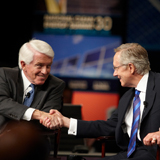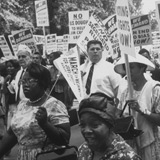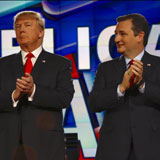
In Memoriam: Bogdan Denitch, 1929–2016
Sociologist, leading democratic socialist, and longtime Dissentnik Bogdan Denitch passed away last Monday at the age of eighty-six.


Sociologist, leading democratic socialist, and longtime Dissentnik Bogdan Denitch passed away last Monday at the age of eighty-six.

Politicians like Lula and Rousseff should neither be above the law nor prosecuted outside it. As Brazil weathers corruption scandals and a democratic crisis, history reminds us that ignoring due process carries grave dangers.

As China’s economic prospects darken, headlines worldwide accuse China’s leaders of threatening global capitalism. Once upon a time, that was precisely the point.

Business conservatives have demonized every piece of progressive legislation as “creeping socialism” since the 1930s. Now that a democratic socialist has called their bluff, they’re at a loss.

In Oxnard, the largest city along California’s Central Coast, an immigrant community is winning the fight against what could be the state’s last fossil fuel power plant.

Bernie Sanders’s plan for higher education would go a long way toward improving graduation rates, raising incomes, and lowering unemployment among millennials—African Americans and Latinos most of all.

“Zippy” creator Bill Griffith’s new book Invisible Ink is a curious masterpiece, merging the real-life personal saga of his mother with the story of the forgotten pulps.

Social change is seldom either as incremental or predictable as insiders suggest. Instead, movements win by changing the political weather, turning demands considered unrealistic into ones that can no longer be ignored.

Last May, Ireland made history by becoming the first nation to legalize same-sex marriage by popular vote. Will abortion rights—the final stronghold of Catholic morality in the island nation—be next?

The city of Ferguson has reneged on its promises to reform policing practices. Its current standoff with the Justice Department reveals the stubbornness of a municipal system that combines handouts to big corporations with predatory fines for the poor.

The Gulf countries’ migrant labor regime is brutal. But calling it “slavery” obscures what is really a highly modern system of exploitation—and the struggles of workers themselves to change it.

The Democratic elite’s dismissal of the Sanders campaign ultimately reflects a contempt for democratic ideals.

Jane Mayer’s Dark Money is a magisterial portrait of the right-wing billionaires who have “weaponized” conservative philanthropy and pulled the GOP ever further right. Yet Mayer’s account fails to explain something just as alarming: the far-right surge from the grassroots.

Unlike his chief rival Ted Cruz, Donald Trump dismisses the high-church liturgy of American politics in favor of blunt tribalism. In Trump’s America, no one is looking out for you.

In a special audio dispatch, Daniel Aldana Cohen and Kate Aronoff discuss what the COP21 deal will mean for the climate movement in 2016. They hear from activists who were in the streets in Paris, as well as from UNFCCC veteran J. Timmons Roberts, about why we need a wartime-level mobilization today.